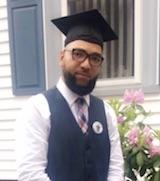Our dedication to Racial Equality and Social Justice (RESJ) spans decades. Learn more about our RESJ Initiative
Expressive Therapies Concentration
-
Credits:
18
Concentration Description
The undergraduate concentration in Expressive Therapies presents an interdisciplinary approach to psychology, human growth and the therapeutic encounter with an emphasis on the creative process as an important component of clinical insight and psychological healing. Having developed out of the specialized fields of art therapy, music therapy, dance therapy and psychodrama, these different expressive art modalities are incorporated into a holistic, action-based approach to working with people who live with a broad spectrum of psychological and medical issues. Highly experiential, action-based classes explore theory and practical application.
A Key Element in Your Bachelor’s Degree. The Expressive Therapies concentration is accepted in any Cambridge College bachelor’s degree, as open electives. It is often of interest to students doing a bachelor’s degree in human services or psychology. It also provides valuable understandings to students in other fields who work with people.
Program Outcomes
Students will gain:
- Fundamental understanding of how the psychology of creativity and the expressive arts view human experience, and how they can contribute to healing and insight
- Working knowledge of psychodrama, art-making, body movement and their applications in therapy
Careers and Further Study
Graduates can become practitioners working with individuals, families and communities in a wide range of treatment settings including hospitals, clinics, community health centers, prisons, youth and geriatric institutions, as well as in private practice, often as part of treatment teams.


